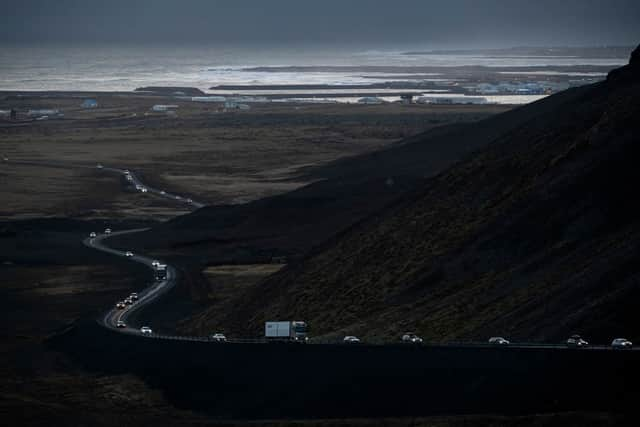Iceland volcano: Fagradalsfjall eruption could cause 'toxic fumes' which could be deadly to people and animals
and live on Freeview channel 276
Experts warn that if Iceland's volcano erupts, it could create "toxic fumes" which could cause serious harm to nearby people and animals - and potentially even further afield.
Fears of an impending volcanic eruption are mounting with authorities continuing to monitor the situation, as hundreds of small earthquakes rock the Reykjanes Peninsula - Iceland's most populated region. The town of Grindavík has been evacuated after large cracks formed in the ground, splitting streets, and authorities say it is "increasingly possible" there will be an eruption at Fagradalsfjall.
Advertisement
Hide AdAdvertisement
Hide AdIceland and its ecosystems are no stranger to volcanoes, with eruptions also taking place in 2021, 2022 and earlier this year - albeit in less populated areas. While it is currently unclear how large a potential eruption might be, experts say the intense weeks-long earthquake swarm suggests that the total volume of magma is much larger than in years past. This raises the concern of more widespread impacts like in the 2010 Eyjafjallajökull eruption - where large volumes of fine ash were shot into the atmosphere, disrupting flights.


This time, however, scientists are concerned about toxic fumes from volcanic gases - which have the potential to be deadly. Dr Phil Collins, deputy dean of geotechnical engineering, at London's Brunel University, said there may be a substantial release of volcanic gases such as sulphur dioxide - which reacts with water in the ground and atmosphere to create tiny droplets of sulphuric acid - and fluorine.
"This may cause a significant health hazard to people in the region," he continued. "A large Icelandic eruption at Laki in 1783 released enough toxic gas to kill large numbers of livestock in Iceland, leading to a famine. The gas spread across northern Europe, including the British Isles, leading to changes in weather patterns and a significant number of deaths from lung problems. There were knock-on effects elsewhere in the northern hemisphere."
At present, it doesn’t look like a Laki-scale disaster is likely, Dr Collins said, but there will still most likely be local and regional impacts. Sulphur dioxide is the main volcanic gas of concern, which can be corrosive and cause breathing problems.
Advertisement
Hide AdAdvertisement
Hide AdScientists warn it will be very unpleasant close to the eruption site, but drifting clouds could affect people further away too. The Iceland Met Office monitors these events, and would let people know if they needed to stay indoors.
University of Leicester volcanologist Professor John Smellie added any toxic fumes were lmost likely to only impact people very locally - or downwind of the eruption. But he warned "the fumes can also cause fluorosis [an ultimately death] in grazing animals from fluorine leached out of any fine ash particles being incorporated in grass".
Iceland is home to large numbers of farmed sheep and horses. However, it's also home to a number of wild animals which could be affected, like reindeer.
Comment Guidelines
National World encourages reader discussion on our stories. User feedback, insights and back-and-forth exchanges add a rich layer of context to reporting. Please review our Community Guidelines before commenting.
